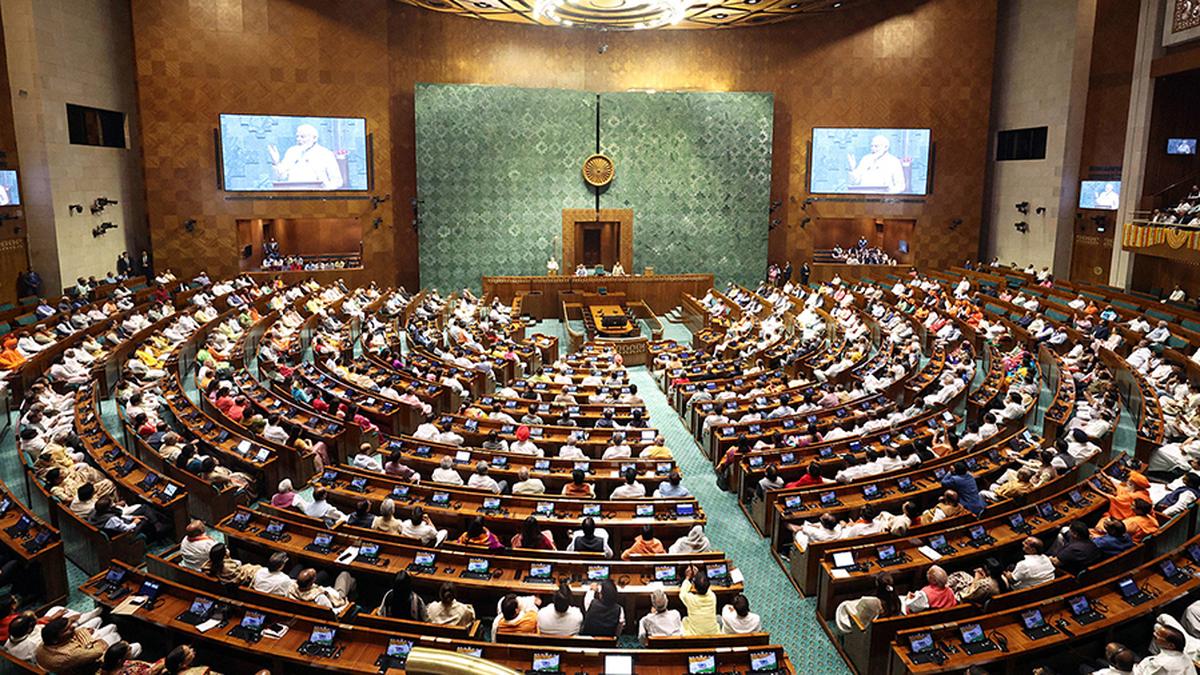
What are the duties of a Speaker? | Explained
The Hindu
President appoints Bhartruhari Mahtab as Speaker pro tem of 18th Lok Sabha, with Deputy Speaker post offered to NDA ally.
The story so far: The President has appointed seven-time MP Bhartruhari Mahtab as the ‘Speaker pro tem’ of the 18th Lok Sabha. The election of the full-time Speaker is scheduled for June 26. There are also reports of the Deputy Speaker being offered to one of the allies of the ruling National Democratic Alliance (NDA), a post that has been held by the Opposition since the 10th Lok Sabha (1991).
Article 94 of the Constitution states that the Speaker of the Lok Sabha shall not vacate his/her office until immediately before the first meeting of the Lok Sabha after its dissolution. This is to ensure that the office of the Speaker is never left vacant. Hence, Om Birla who was the Speaker of the 17th Lok Sabha continues in that post till June 24 when the first meeting of the 18th Lok Sabha is scheduled. Article 95(1) of the Constitution provides that when the post of Speaker and Deputy Speaker is vacant, the President shall appoint a member of the Lok Sabha to perform the duties of the Speaker. This would be the situation when the first meeting of a new Lok Sabha commences.
Hence, the President appoints ‘Speaker pro tem’ under this provision till the full-time Speaker is elected. The term ‘pro tem’ means ‘for the time being’ or ‘temporary’.
This term is not found in the Constitution or rules of Lok Sabha but is a conventional term which finds mention in the ‘Handbook on the working of Ministry of Parliamentary affairs.’ As per tradition, one of the senior-most members of the Lok Sabha is selected by the government, who is then administered oath by the President. The Speaker pro tem administers oath of office to other MPs and presides over the election of full-time Speaker. In the 18th Lok Sabha, Bhartruhari Mahtab of the Bharatiya Janata Party (BJP) has been appointed as Speaker pro tem.
Article 93 of the Constitution states that the Lok Sabha shall choose two members to be its Speaker and Deputy Speaker. The election of the Speaker is held on a date fixed by the President. All the Speakers in independent India have been elected unopposed. The election of Deputy Speaker is held on a date fixed by the Speaker.
Apart from the conduct of business, the Speakers perform two important constitutional functions of certifying a Bill to be a Money Bill (over which the Rajya Sabha has limited role), and deciding on disqualification under the Tenth Schedule for defection. In discharging these roles in the past, the Speakers have invariably favoured the ruling dispensation, something that should be avoided.
The Lok Sabha rules provide the Speaker with the powers of referral of Bills introduced to Standing Committees and suspension of members for grave disorder up to a maximum of five days. Referral of Bills to committees have declined from 71% during 2009-14 to 16% during 2019-24. With the return of a coalition government, it is expected that the Speaker would refer important Bills to Standing committees for scrutiny. There were also large-scale suspensions of Opposition MPs during the winter session of 2023. Such suspensions affect the robust functioning of Parliament and should be carried out with restraint.

ACB files case against IPS officer N. Sanjay in Andhra Pradesh. The official is accused of manipulating the tender processes for awarding contract for development and maintenance of AGNI-NOC portal, and conducting awareness meetings for SC/STs. It is alleged that the total value of properties stolen, or involved in the case is estimated at ₹1,75,86,600.










